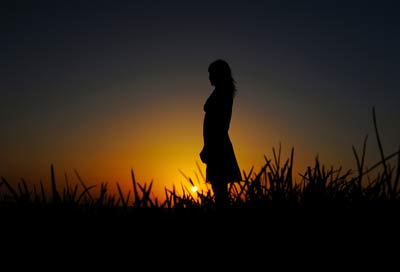
– Among all the impacts of climate change, from rising sea levels to landslides and flooding, there is one that does not get the attention it deserves: an exacerbation of inequalities, particularly for women.
Especially in poor countries, women’s lives are often directly dependent on the natural environment.
Women bear the main responsibility for supplying water and firewood for cooking and heating, as well as growing food. Drought, uncertain rainfall and deforestation make these tasks more time-consuming and arduous, threaten women’s livelihoods and deprive them of time to learn skills, earn money and participate in community life.
But the same societal roles that make women more vulnerable to environmental challenges also make them key actors for driving sustainable development. Their knowledge and experience can make natural resource management and climate change adaptation and mitigation strategies at all levels more successful.
To see this in action, just look to the Ecuadorian Amazon, where the Waorani women association (Asociación de Mujeres Waorani de la Amazonia Ecuatoriana) is promoting organic cocoa cultivation as a wildlife protection measure and a pathway to local sustainable development.
With support from the U.N. Development Programme (UNDP), the women’s association is managing its land collectively and working toward zero deforestation, the protection of vulnerable wildlife species and the production of certified organic chocolate.
In the process, the women are building the resilience of their community by investing revenues from the cocoa business into local education, health and infrastructure projects and successfully steering the local economy away from clear-cutting and unregulated bushmeat markets.
Indigenous women are also driving sustainable development in Mexico. There, UNDP supports Koolel-Kab/Muuchkambal, an organic farming and agroforestry initiative founded by Mayan women that works on forest conservation, the promotion of indigenous land rights and community-level disaster risk reduction strategies.
The association, which established a 5,000-hectare community forest, advocates for public policies that stop deforestation and offer alternatives to input-intensive commercial agriculture. It has also shared an organic beekeeping model across more than 20 communities, providing an economic alternative to illegal logging.
Empowered women are one of the most effective responses to climate change. The success of climate change actions depend on elevating women’s voices, making sure their experiences and views are heard at decision-making tables and supporting them to become leaders in climate adaptation.
By ensuring that gender concerns and women’s empowerment issues are systematically taken into account within environment and climate change responses, the world leaders who wrapped up the U.N. Climate Change Conference 2014 in Lima, Peru, can reduce, rather than exacerbate, both new and existing inequalities and make sustainable development possible.
Edited by Kitty Stapp
Join us in defending the truth before it’s too late
The future of independent journalism is uncertain, and the consequences of losing it are too grave to ignore. To ensure Truthout remains safe, strong, and free, we need to raise $46,000 in the next 7 days. Every dollar raised goes directly toward the costs of producing news you can trust.
Please give what you can — because by supporting us with a tax-deductible donation, you’re not just preserving a source of news, you’re helping to safeguard what’s left of our democracy.